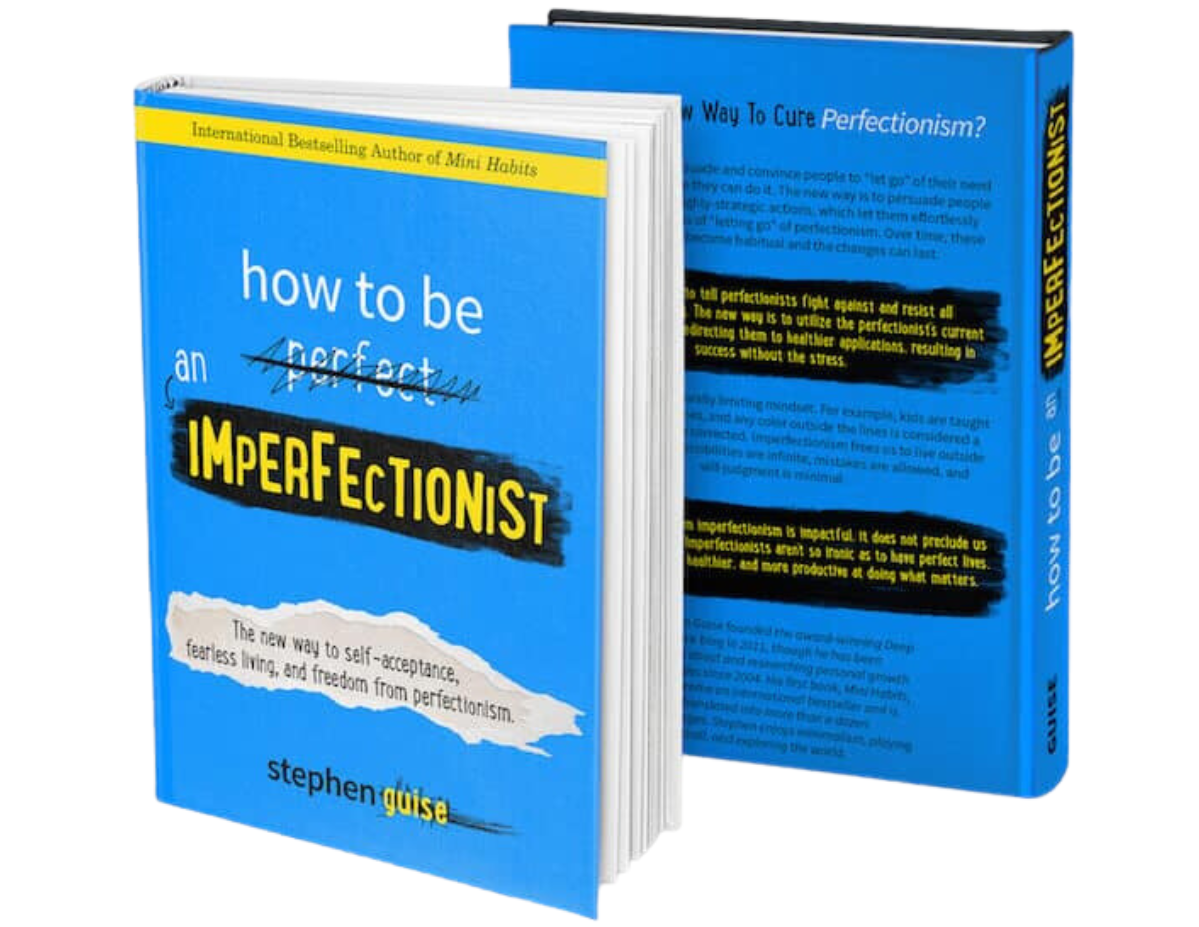
“Perfect is the enemy of Good.” ~ Voltaire
You may be familiar with the aphorism “Perfect is the enemy of Good,” first attributed to Voltaire back in 1770.
Fascinatingly, we’ve heard that exact same phrase used to represent two entirely opposite ideals, so here’s a pop quiz: When you hear or use it, do you think it means that:
- ‘Perfect’ is something to be pursued, and that ‘good’ is synonymous with words like ‘mediocre’ or even ‘bad’ in this context?
- ‘Perfect’ is an unattainable or impossible goal, and therefore by pursuing it we put ‘good’ (or perhaps ‘good enough’) at risk?
If you didn’t already self-identify as a perfectionist, and you choose (1) above, then you have just discovered something that is going to change your life. Congratulations! Take the rest of the day off (after reading the rest of this email, of course).
Why is it so important to understand your relationship to the idea of perfection? Because perfection is indeed an unattainable and impossible goal. Just like chasing the pot of gold at the end of a rainbow, the closer to perfection you get, the further away it becomes.
But, just like that mythical pot of gold, perfection is a very seductive idea. Many believe that by achieving it they will receive respect, admiration, fame or fortune. But the reality is that perfect is often someone else’s ideal, not ours. Whether consciously or not, when we find ourselves in pursuit of perfection, we are trying to avoid something else, like judgment, shame, failure, or guilt. As Brené Brown puts in the video we share below, “When perfectionism is driving, shame is always riding shotgun.”
Take a moment to reflect on the areas of your life where you might typically pursue perfection. No one has the time or energy for it everywhere, so look at where it does show up. What you are likely to find is that these are the same areas of your life where you feel most vulnerable and exposed. For you it might show up in the disproportionate amount of time you spend preparing for a presentation, drafting a document or email, or perhaps how you invest in certain relationships. Often, in those areas, you are motivated not by what you want to achieve, but by what you believe others might think or expect of you. You are hoping to avoid their judgment – even if ‘they’ don’t actually exist, or are an internalized version of an influential and judgmental figure from your early childhood.
Now, consider the cost of perfectionism. If you’re spending ten times longer preparing the ‘perfect’ presentation than a merely ‘good’ presentation would take, there are lots of other things you’re not doing during that time. Some of those things may be things you want to avoid (perfectionism is a great place to hide), but there will also be opportunities you are unable to take advantage of. Opportunities to grow in your career, find greater balance and fulfillment in your work and life or strengthen your important relationships, to name a few.
There are lots of ways to help you overcome your perfectionism, , but the first and most vital step is the recognition that you have it, and that it doesn’t serve you. Otherwise, you’re just chasing rainbows.
Hat Tip to Sally Fazakerley for this topic.
This week’s inquiry…
What does the pursuit of perfection keep you from enjoying?
Dive Deeper…
Brené Brown is so good it only takes her
3.5 minutes in this video to explain
the difference between striving for excellence,
and being a perfectionist.
“Perfectionism is not about what I want, perfectionism is ‘what will people think.'”
In How to be an Imperfectionist, Stephen Guise, the international bestselling author of Mini Habits, introduces a new way to show people how simple but highly strategic “mini actions” can empower them to gradually and effortlessly “let go” of perfectionism. This book applies the science of behavior modification directly to the roots of perfectionism, resulting in a new and superior method for change.


